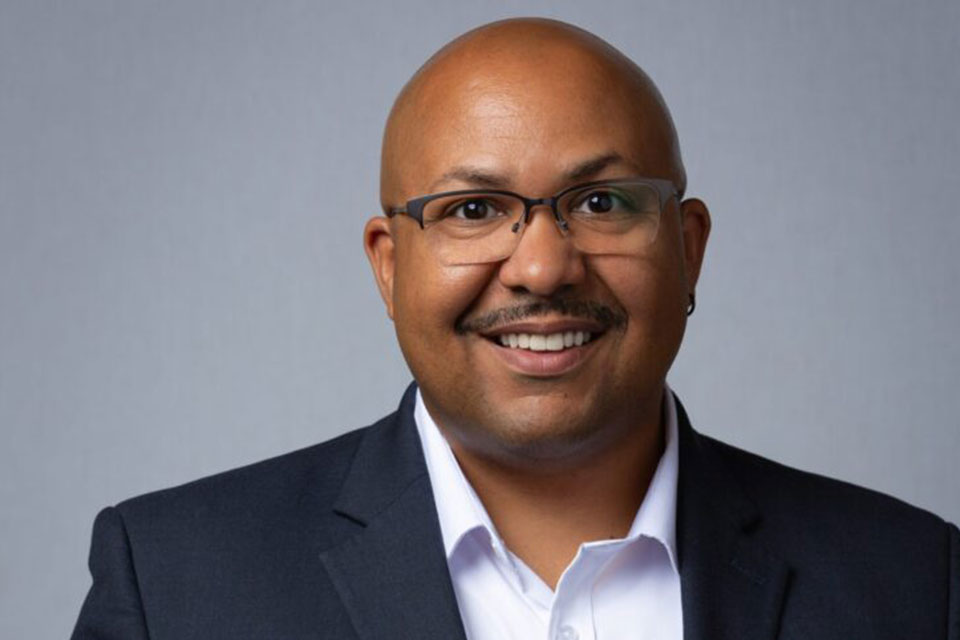Ralph Tavares Jr. ’07 (MBA) influences diversity, equity and inclusion efforts across RI

Raised by a first-generation Cape Verdean American family, Ralph Tavares Jr. was the first person in his family to graduate from college, and completed his Master of Business Administration (MBA) at Salve Regina in 2007. Throughout his career, Tavares has garnered an impressive resume surrounding diversity, equity and inclusion (DEI) efforts.
MBA experience at Salve Regina
Tavares found his MBA experience to be incredibly positive, and he credits Dr. Myra Edelstein, associate professor in the Department of Business and Economics, for being the heart and soul of the program while he was a student.
“Dr. Edelstein’s class was a portal into a whole world outside of higher education that I wasn’t aware of,” Tavares said. “Her humor disarmed everyone in the room. Her stories were vivid, dynamic and hysterical – and she was always available to speak with anyone, brainstorm and even give career advice.”
His fellow students were just as impressive to Tavares as the professors. Their wide range of experiences, which brought different perspectives to the table, created a natural sense of diversity, equity and inclusion, and he gained so much from each classmate he encountered.
Sixteen years after graduating from Salve, Tavares is constantly reminded of the lessons he learned in the MBA program. “I remember gaining a lot of confidence in my presentations and speaking in front of crowds,” he said. “I don’t remember what my presentation was about, but I remember whatever I said had everyone in my classroom laughing. Being able to make people laugh, being my authentic self, and conveying ideas and strategies through storytelling has always stuck with me.”
Growing DEI initiatives across Rhode Island
Tavares was the associate director of admission and multicultural education at Salve Regina from 2002-2014, where he developed several University-wide diversity recruitment and retention plans – including programming, academic sessions and training around issues of equity, access and inclusion.
From 2014-2019, he was the director of multicultural student success and assistant dean of undergraduate and graduate studies at Providence College, and then the director of diversity and outreach at Roger Williams University School of Law from 2019-2022.
Tavares is currently the vice president of equity and inclusive excellence for Storbeck Search, a company within Diversified Search Group – one of Forbes’ top 10 executive search firms in the United States.
“I specifically work in the education practice of the search firm,” he said. “We do higher education, leadership searches, independent schools and some nonprofit and social impact organizations. My role in the education practice is making sure that our processes of how we work with our clients – which are universities, colleges and schools – elevate candidates that have been historically excluded from the leadership suite of those spaces.”
The Rhode Island Foundation’s Equity Leadership Initiative
The Rhode Island Foundation recently selected Tavares to participate in its Equity Leadership Initiative for 2023-2024. The initiative’s goal is to build a pipeline of leaders of color for positions of influence throughout the state. It is committed to advance diversity, equity and inclusion in all its activities. Tavares was selected from more than 80 applicants.
“Equity-driven leadership is a way of thinking and acting that is focused on creating a more just and equitable world,” he said. “Equity-driven leadership is a journey of constant learning, growing, thinking, strategizing and executing.”
Recent work of the Rhode Island Foundation included awarding $2.2 million to help dismantle the fundamental causes of systemic racism in Rhode Island, awarding $1.2 million to increase the number of teachers of color in urban school districts and creating a capacity-building program to support nonprofits.
Diversity, equity and inclusion is important to Tavares because it fosters a sense of community and belonging, from students on a campus to employees in an office. He believes DEI is critical to academic, social and professional success – because without DEI’s interconnectivity comes an increasingly difficult environment to work in.
“It takes an incredible amount of grace and mercy to bring people to the table,” he said. “To work through some of the difficult things that we have gone through in our country, as we try to make our practices more just and equitable in all the spaces that we are in – there is a lot of healing that needs to happen in this country.”

